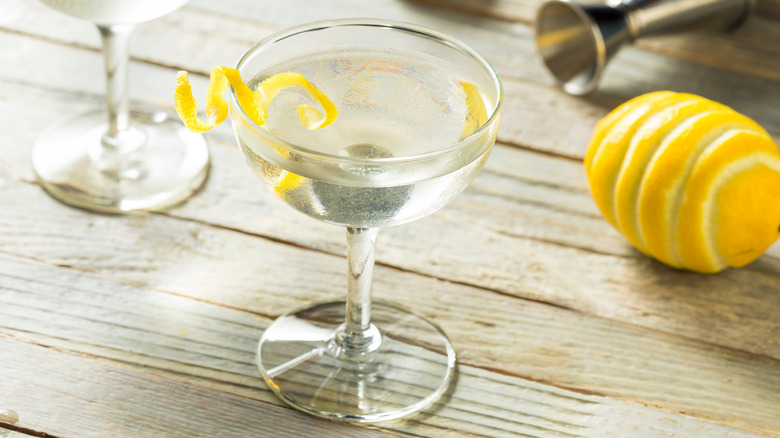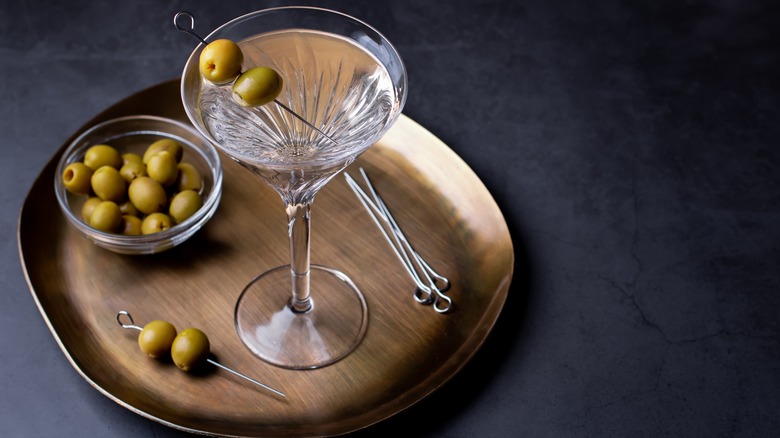Why You Should Consider A Lemon Peel Instead Of An Olive For Your Next Martini
If you love both gin and vermouth, it's quite likely that you count a classic martini among your favorite cocktails. A widely beloved drink whose exact origins remain somewhat mysterious, according to Liquor.com, the martini, as we know it today, was likely first stirred together around 1905. A straightforward mix of London-style gin, dry vermouth, and a dash of orange bitters stirred with ice and strained into a chilled cocktail glass, the martini has inspired many variations – including its popular vodka version, in which the spirit subs in for gin.
Some so-called martinis out there are pretty wacky, from a sweet espresso martini featuring Kahlua to a bright green appletini that gets its neon hue from sour apple schnapps. But even within the more restrained sphere of classic martinis, there's a range of versions to please all sorts of palates, mostly depending on the type of garnish that's plopped in the drink after it's poured.
Olives might be classic, but lemon is a better bet
If you've ever sidled up to the bar to order a martini, your bartender may have finished the drink with a variety of garnishes, ranging from a pickled onion to an olive to a lemon twist. And while the differences between these garnishes might seem subtle, they're far from it, according to "Cocktail Codex" author Alex Day. "It takes a little time to really see the layered dimensions of how a twist is so different from an olive — but isn't that what a martini is?" Day told Imbibe. "Nuanced, subtle. To me, the choice of garnish is as much a part of the martini's recipe as is the choice of gin or vodka and the presence (or absence) of vermouth."
So when selecting a martini garnish, choose wisely, Mental Floss counsels. While olives are a classic choice that can certainly be enjoyable flavor-wise, the outlet notes that they can warm up a freshly strained martini since the olives used by bartenders are often sitting out at room temperature. Since a martini is best enjoyed cold, a lemon twist (or a lime or orange twist) can be a better choice.
If you're a true olive lover, you can always make your martinis at home with a high-quality one. "A cold, large un-pitted Castelvetrano olive resting like the hero it is in the bottom of a delicate glass filled high with cold gin and vermouth" fits the bill nicely, according to Day.

